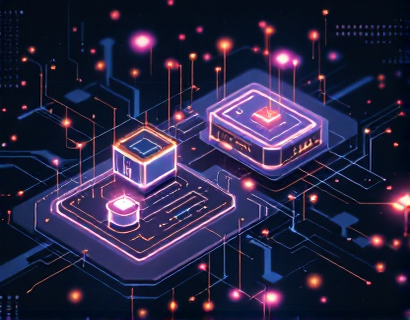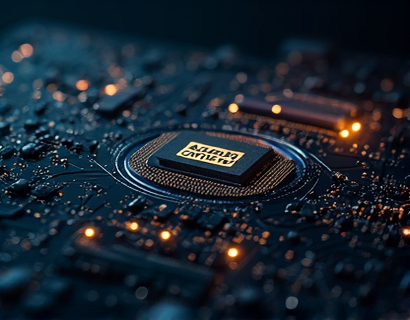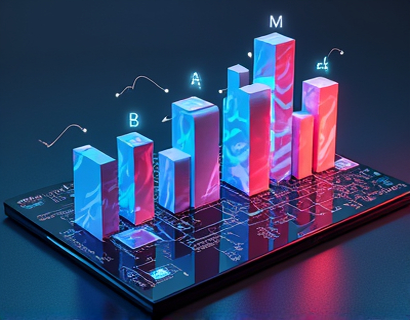Blockchain Oracle Management: Streamlining Data Integration and Smart Contract Execution for Developers and Businesses
In the rapidly evolving landscape of blockchain technology, the role of oracles has become increasingly pivotal. Oracles serve as the bridge between the blockchain and the external world, providing critical data and services that smart contracts rely on for accurate execution. However, managing these oracles effectively remains a challenge for developers and businesses aiming to harness the full potential of decentralized applications. This article delves into the latest software solutions designed to revolutionize oracle management, focusing on how these tools streamline data integration and enhance smart contract functionality. By doing so, we aim to provide a comprehensive guide for developers and businesses seeking to optimize their blockchain interactions.
Understanding the Role of Oracles in Blockchain Ecosystems
Oracles are third-party services that feed external data into blockchain networks, enabling smart contracts to interact with real-world information. This data can range from simple values like temperature readings to complex financial instruments. The importance of oracles lies in their ability to provide the necessary inputs for smart contracts to execute tasks such as automating payments, triggering events, or adjusting parameters based on external conditions. Without reliable oracles, the autonomy and trustlessness that blockchain promises would be significantly compromised.
Challenges in Oracle Management
Despite their crucial role, oracles come with several challenges. One of the primary issues is data reliability. Oracles must provide accurate and timely data, but this is often hindered by network latency, data source failures, or malicious actors. Another challenge is security. Oracles act as a gateway for external data, making them potential entry points for attacks. Ensuring the integrity and security of data transmission is paramount. Additionally, the decentralized nature of blockchain requires oracles to be trustless and non-custodial, adding layers of complexity to their management.
Streamlining Data Integration with Advanced Oracle Management Solutions
To address these challenges, innovative software solutions have emerged, focusing on streamlining data integration and enhancing smart contract functionality. These platforms offer a suite of tools designed to manage oracles more efficiently, ensuring that developers and businesses can rely on high-quality data for their decentralized applications.
One key feature of these solutions is centralized data aggregation. By consolidating data from multiple oracles, these platforms reduce the risk of relying on a single data source. This aggregation process involves cross-verifying data points to ensure accuracy and consistency. For instance, if one weather Oracle provides a temperature reading of 25°C while another reports 30°C, the system can flag this discrepancy for review, ensuring that smart contracts use the most reliable data available.
Another critical aspect is real-time data updates. Blockchain applications often require up-to-the-minute information to function correctly. Advanced oracle management solutions provide mechanisms for frequent data refreshes, ensuring that smart contracts have access to the latest data without significant delays. This is particularly important for applications like decentralized finance (DeFi) where timing can be crucial for transaction execution and risk management.
Enhancing Smart Contract Functionality
Beyond data integration, these platforms enhance smart contract functionality by providing robust APIs and SDKs. These tools simplify the process of integrating oracle data into smart contracts, reducing development time and minimizing errors. Developers can focus on building innovative applications rather than wrestling with the intricacies of data fetching and validation.
Moreover, these solutions often include built-in security features such as encryption and multi-signature requirements for data submissions. This multi-layered security approach helps protect against potential attacks and ensures that only verified data is fed into the blockchain. For businesses, this means a higher level of trust in the data used by their smart contracts, leading to more reliable and secure decentralized applications.
Case Studies and Real-World Applications
To illustrate the impact of advanced oracle management solutions, let's consider a few real-world applications. In the DeFi space, a decentralized lending platform can utilize an oracle to fetch real-time interest rates from multiple sources. By integrating a reliable oracle management solution, the platform can ensure that loan terms are adjusted based on the most current market conditions, enhancing both fairness and efficiency.
In the supply chain management sector, an IoT-enabled tracking system can use oracles to report the status of goods in transit. A blockchain-based smart contract can then automate payments to logistics providers once the goods are delivered, verified by the oracle. This not only streamlines operations but also reduces the risk of fraud and errors.
Benefits for Developers and Businesses
The adoption of advanced oracle management solutions brings numerous benefits for both developers and businesses. For developers, these tools simplify the development process, allowing them to build more complex and reliable decentralized applications with less effort. The reduced need to handle data aggregation and security manually frees up resources for innovation and feature development.
For businesses, the primary benefit is enhanced trust in their blockchain-based systems. By ensuring that the data used by smart contracts is accurate and secure, businesses can confidently deploy decentralized applications that meet regulatory requirements and customer expectations. This trust is crucial for adoption and can lead to a competitive advantage in the market.
Future Trends in Oracle Management
As blockchain technology continues to mature, the landscape of oracle management is expected to evolve further. One emerging trend is the integration of machine learning algorithms to predict and mitigate data anomalies. These algorithms can analyze historical data patterns to identify potential issues before they affect smart contract execution, further enhancing reliability.
Another area of development is the standardization of oracle protocols. Industry-wide standards can facilitate interoperability between different blockchain networks and oracle services, making it easier for developers to build cross-chain applications. This standardization effort is crucial for the broader adoption of blockchain technology across various industries.
Conclusion
In conclusion, the management of oracles is a critical component of building robust and reliable blockchain applications. Advanced software solutions are transforming the way developers and businesses interact with external data, ensuring that smart contracts can execute with confidence. By streamlining data integration and enhancing security, these platforms unlock the full potential of blockchain technology, paving the way for a more decentralized and trustless future. As the ecosystem continues to evolve, the importance of effective oracle management will only grow, making it an essential focus area for anyone involved in blockchain development and business.










































